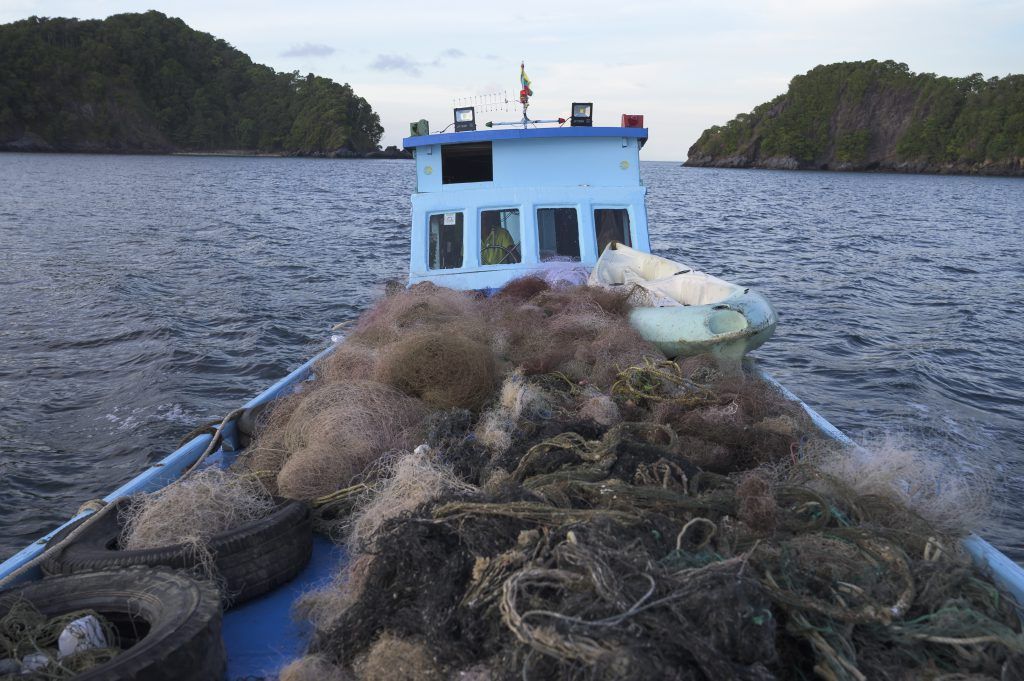Blog Layout
New book outlines Richard Walker’s manifesto for corporate activism
Iceland | 21 March 2021
Industry Insights / New book outlines Richard Walker’s manifesto for corporate activism
Richard Walker, Managing Director of Iceland Foods will share his unique approach to leading a sustainable business agenda in a new book, which will be published in April.
The Green Grocer sets out Richard’s learnings since he embarked on Iceland’s ‘Doing it Right’ plan in 2017 and his practical advice for business of all sizes that want to make a positive difference.
The Green Grocer
Growing up, Richard never wanted to work in the family business or attempt to follow in the legendary footsteps of his father, who founded the company in 1970. But following a successful property career in Europe and the UK, and after spending a year training in-store between 2012 and 2013, he joined the head office team in his early 30s, fully aware of his inherited privilege. This awareness means he has never taken his position for granted and he has always strived to make good use of it.
This debut book is about his quest to find purpose with profit for Iceland. He offers clear-sighted advice about how leaders can make genuine progress on sustainable initiatives while being realistic about profit margins, and obligations to customers and colleagues. His experience provides inspiration for any business, whether a large corporation, a start-up, a kitchen-table entrepreneur, or a sole trader, to make a difference.
Split into six chapters covering what businesses need to do, how to eliminate single-use plastic and palm oil, government responsibilities, lessons from Covid-19 and why Richard is optimistic about the future, The Green Grocer is intended to inspire tangible change. He openly discusses the backlash he faced following the release of Iceland’s banned Rang-Tan 2018 Christmas advert, how the food retailer coped with panic buying incentivised by fear of a national lockdown in 2020, and praises the many ways that start-ups are leading the charge against single-use plastic. Each chapter concludes with key takeaways to provide readers with advice for next steps and fundamental learnings.
All Richard’s proceeds from the book will go to the Iceland Foods Charitable Foundation. It will be published as a paperback by DK at a £12.99.
Order a copy here.

by Rachael McMahon
•
30 March 2021
Living Sustainably- The Facts In 2019, the Intergovernmental Panel on Climate Change (IPCC) , reported how a temperature rise of 1.5 degrees Celsius will negatively impact the world. Supporting the beef industry contributes to climate change ; the production of meat, dairy, and immense water usage to grow food for the animals are all factors that lead to a high carbon footprint. Making improvements on food production, transforming eating habits and reducing food waste can help fight climate change. These adjustments need to come from governments and societies soon, as the impacts on the planet will soon be irreversible. The pandemic and time in lockdown have caused many to rethink their relationship with food. Restrictions of movement and fear caused food security worries and fuelled a new passion for home cooking. Lockdown has even influenced people to increase their vegetable consumption. The Next Generation’s Priorities In order to understand the impacts of the pandemic, Strategy& PwC surveyed a total of 2,000 adults about their ever-changing eating habits and shopping behaviours. About 15% (one in six shoppers) stated that health was the most important driver for their diet change, followed by ethics, sustainability, and animals. 22% of Generation Z and Millennials (18–34 years) were more likely to change their habits for environmental and ethical reasons, in comparison to only 10% of participants aged 55 and over. As younger generations are changing their habits, the retail industry needs to adapt to new consumer and environmental demands. Carbon Emissions Reduction The social economic disruption, lockdowns, and work from home situations have led to global greenhouse gas emission reduction of nearly 2.4 billion , a 7% drop from 2019. While these emissions are predicted to rebound in 2021, governments are encouraged to prioritise policies that tackle climate change in their upcoming economic recovery plans. More adults grew conscious about the environment in lockdown, as seen in a study commissioned by the global hygiene and health company, Essity . During lockdown, 81% of adults stated that they worried more about the planet’s future. A further 50% of these adults have converted these concerns into actions by buying less plastic, recycling more often, and taking shorter showers. Going Vegan and Buying Sustainable Products The Veganuary concept started in 2014 in York, encouraging people to follow a vegan lifestyle for the month of January. The number of participants has doubled since 2019; 500,000 people signed up to participate in Veganuary this year, with 125,000 participants from the UK . Iceland was one of the British supermarkets to participate in this challenge, promoting the many benefits of a plant-based diet. Awareness surrounding health and ethics has increased during the COVID-19 crisis, as restrictions do not allow people to travel long distances to shop. People have realised the importance of health, exercise and well-being. A survey of 3,000 shoppers conducted in April 2020 found that 64% of consumers focused more on limiting food waste. Half of the consumers surveyed said they were opting for healthier options, with another 45% stating that they are conscious about purchasing items that are more sustainable. Iceland are Doing IT Right Sustainability has become a major driver in consumers’ decision-making processes. Supermarkets and brands have recognised the acceleration of environmental awareness and are working to meet their consumers’ needs and expectations. The Doing it Right campaign is at the heart of sustainability. Iceland supports the UN’s Sustainable Development Goals (SDG), following the five principles: • Caring for the planet by enhancing the global environment through leading initiatives • Supporting the communities by paying taxes and through their Charitable Foundation • Selling quality food at a great value • Working with suppliers to build mutually beneficial long-term partnerships • Valuing our people as family business Iceland’s focus is to wipe out poverty, fight inequality and tackle climate change in the run-up to 2030. Iceland’s own label products have not contained palm oil since 2019. They have reduced their plastic packaging and plans to remove plastic packaging from their own label completely by 2023. Adding to all Iceland’s commitment of being more sustainable, Managing Director Richard Walker has written a book on how to help other businesses become more sustainable. The book ‘The Green Grocer: one man’s manifesto for corporate activism’, discusses how it is possible to be successful in sustainable initiatives while being pragmatic about profit and staying committed to customers and employees. The Iceland Media team provides Iceland Suppliers with a full range of media opportunities that influence Iceland customers, and help brands grow by drawing attention to their environmental and socially responsible products and brand values. Interested in booking a campaign in Iceland stores or online? Request a proposal or send an email to hello@icelandmedia.co.uk .

by Iceland
•
19 March 2021
As part of its membership, Iceland will collaborate with other GGGI members to help achieve the initiative’s goals of improving the health of marine ecosystems, safeguarding human health and livelihoods and protecting marine animals from harm. The GGGI has a holistic approach, working cross-sector with the fishing industry, private sector, NGOs, academia and governments. Projects involve training people to safely recover ghost gear from waters, educating fishers on recycling of nets and other gear, capacity building work to improve the understanding of best management practices of fishing gear, data collection and recording to understand and mitigate the problem. Iceland will also introduce GGGI to its Fish and Seafood suppliers via its Plastic Free Working Group in April, giving them the opportunity to learn more about the initiative and become members themselves. Richard Walker, Managing Director of Iceland, said: “Ensuring our oceans remain an environment where marine life can live and thrive is absolutely imperative. We are proud to become a member of the Global Ghost Gear Initiative and help tackle the problem of ghost fishing gear. Reducing pollution is an issue that Iceland has been addressing since we made our industry-leading plastics commitment and joining the GGGI is another step forward in our efforts to reduce marine pollution.” GGGI was founded by non-profit World Animal Protection in 2015 in a bid to help remove some of the millions of abandoned fishing nets, pots and lines that get left in the sea each year. Since 2019, the GGGI has been hosted under Ocean Conservancy’s Trash Free Seas® program. For further information visit https://www.ghostgear.org/
Powerful media inventory to amplify your existing JBPs...
Create a campaign brief and we'll respond within 24 hours with a recommendation & commercial proposal...
CONTACT US
Iceland Supplier Optimisation Team
(provided by rmi)
7 Bell Yard
Strand
London
WC2A 2JR
(provided by rmi)
7 Bell Yard
Strand
London
WC2A 2JR
020 8962 2300
hello@IcelandMedia.co.uk
USEFUL LINKS
STAY INFORMED
Subscribe
Thank you for contacting us.
We will get back to you as soon as possible
We will get back to you as soon as possible
Oops, there was an error sending your message.
Please try again later
Please try again later


